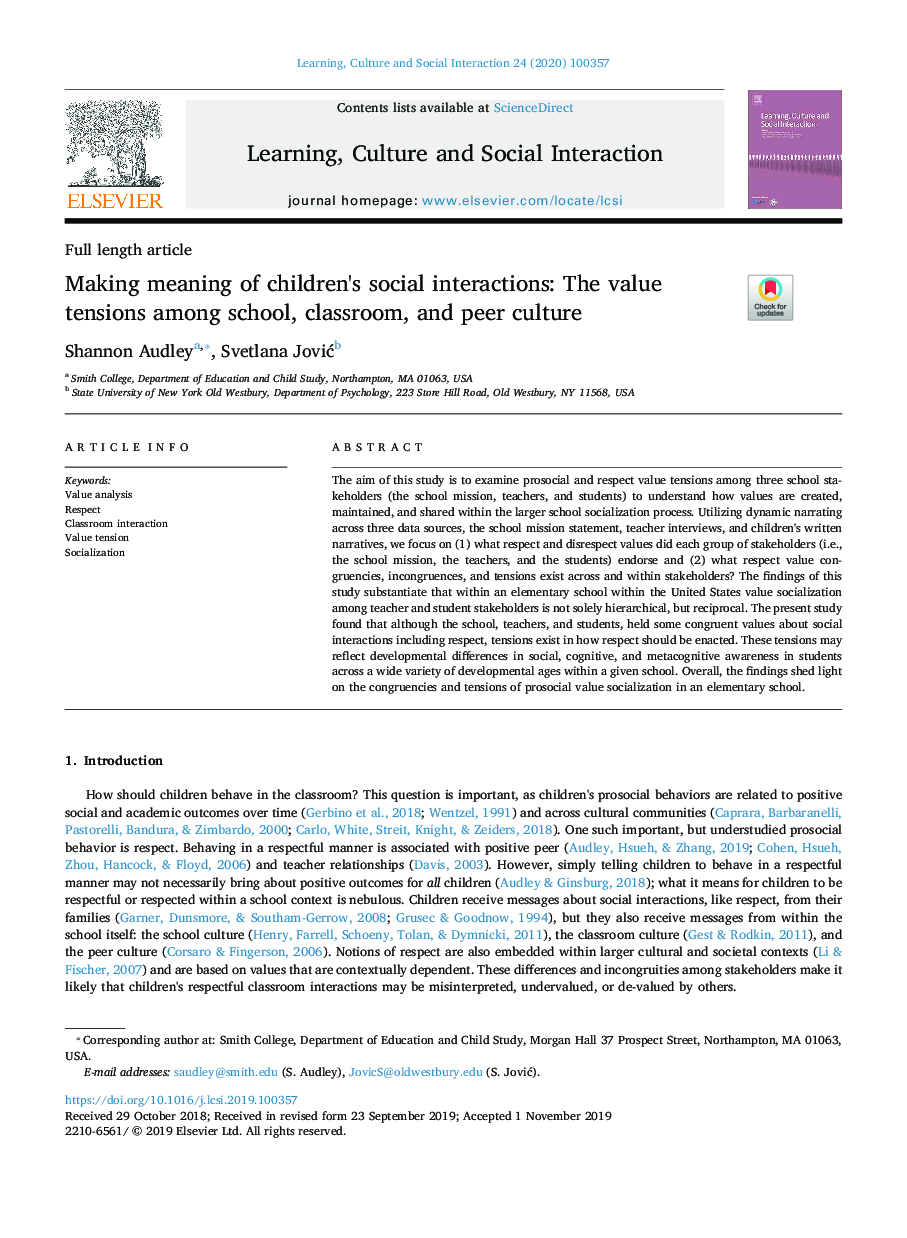| Article ID | Journal | Published Year | Pages | File Type |
|---|---|---|---|---|
| 13428078 | Learning, Culture and Social Interaction | 2020 | 16 Pages |
Abstract
The aim of this study is to examine prosocial and respect value tensions among three school stakeholders (the school mission, teachers, and students) to understand how values are created, maintained, and shared within the larger school socialization process. Utilizing dynamic narrating across three data sources, the school mission statement, teacher interviews, and children's written narratives, we focus on (1) what respect and disrespect values did each group of stakeholders (i.e., the school mission, the teachers, and the students) endorse and (2) what respect value congruencies, incongruences, and tensions exist across and within stakeholders? The findings of this study substantiate that within an elementary school within the United States value socialization among teacher and student stakeholders is not solely hierarchical, but reciprocal. The present study found that although the school, teachers, and students, held some congruent values about social interactions including respect, tensions exist in how respect should be enacted. These tensions may reflect developmental differences in social, cognitive, and metacognitive awareness in students across a wide variety of developmental ages within a given school. Overall, the findings shed light on the congruencies and tensions of prosocial value socialization in an elementary school.
Related Topics
Social Sciences and Humanities
Psychology
Developmental and Educational Psychology
Authors
Shannon Audley, Svetlana JoviÄ,
